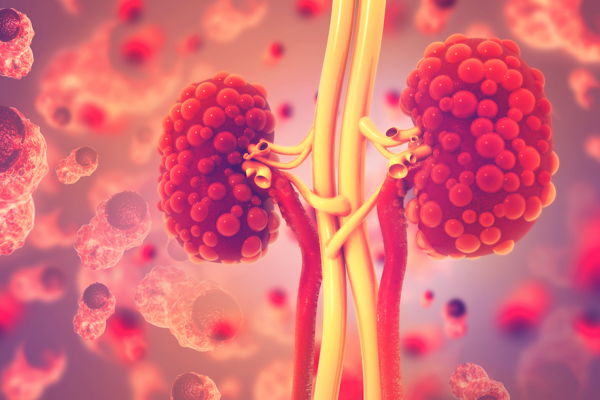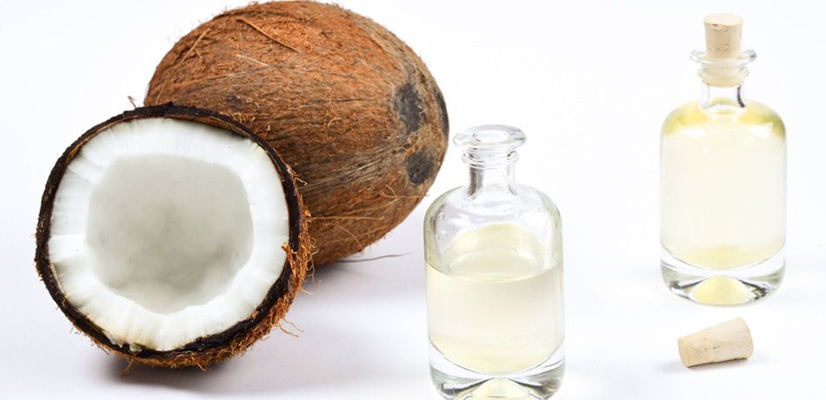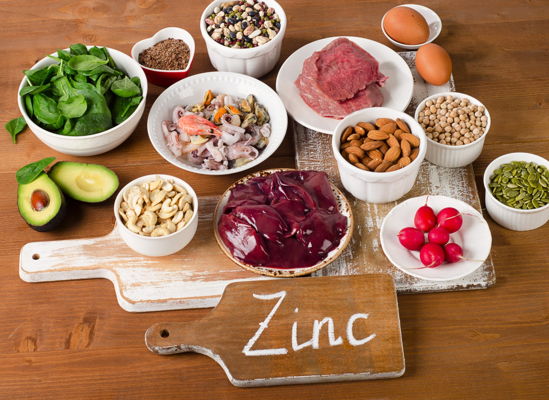12 Reasons Why You Should Start Using Apple Cider Vinegar
Tuesday May 29, 2018 by Marianne Gutierrez 2,007 words
1. It Might Lower Your Risk of Heart Disease
Every year, 735,000 Americans have a heart attack, and 610,000 people die of heart disease every year, according to the CDC. Studies have shown that apple cider vinegar may cut down your chances of developing heart disease due to the phenolic acid content in ACV.
Apple cider vinegar samples produced with inclusion of maceration in the surface method had the highest total phenolic content, chlorogenic acid, ORAC, and TEAC levels. Cholesterol and apple vinegar samples were administered using oral gavage to all groups of rats except the control group. Apple cider vinegars, regardless of the production method, decreased triglyceride and VLDL levels in all groups when compared to animals on high-cholesterol diets without vinegar supplementation.
Eviart / shutterstock.com
2. It Eliminates Body Odor
It is thought that Apple Cider Vinegar can reduce or even eliminate body odor, this is because of the effect of apple cider vinegar on microbes, the source of body odor. So try applying raw apple cider vinegar on damp cotton wool and wiping your armpits to reduce odor, as well as ingesting a tablespoonful once a day.
We conclude that ACV can have multiple antimicrobial effects directly on E-coli, S. aureus and C. albicans. ACV addition can also decrease induced inflammatory cytokine release during mononuclear leukocyte infection and increases monocyte phagocytic capacity.
Alternative Daily / alternativedaily.com
3. A Burst of Energy
A teaspoon of apple cider vinegar contains 3.7 mgs of potassium. Potassium is an electrolyte and along with two other electrolytes, sodium and chloride balances homeostasis (water) in the body. Americans have been found to be deficient in this mineral, which then can increase the risk of heart disease and hypertension especially after vigorous exercise. Potassium is vital for the metabolism and energy production and why athletes are particularly in need. Adding raw apple cider vinegar to your diet may increase your energy.
Potassium was identified as a shortfall nutrient by the Dietary Guidelines for Americans 2010 Advisory Committee. The committee concluded that there was a moderate body of evidence of the association between potassium intake and blood pressure reduction in adults, which in turn influences the risk of stroke and coronary heart disease.
Two of the most important electrolytes are sodium and potassium. One reason these are so crucial to metabolism and energy is because they are the fuel for the sodium potassium pump found on the cell membrane of every cell in your body. The sodium potassium pump fuels the final phase of metabolism (the electron transport chain) and therefore is responsible for most of the production of Adenosine Tri-Phosphate (ATP, the primary energy carrier in our bodies).
Sebastian Duda / shutterstock.com
4. It Reduces Symptoms of Disease in Animals
The “Vinegar: Medicinal Uses and Antiglycemic Effect” study at The National Center for Biotechnology Information demonstrates the benefits of the medicinal use of vinegar in animals for fighting infection, cardio-vascular disease, tumors, and for controlling blood-glucose levels:
The antiglycemic effect of vinegar was first reported by Ebihara and Nakajima in 1988. In rats, the blood glucose response to a 10% corn starch load was significantly reduced when coadministered with a 2% acetic acid solution.
Obese rats showed increased serum total cholesterol, triglyceride, low-density lipoprotein-cholesterol (LDL-C), very low density lipoprotein (VLDL) and atherogenic index after 6 and 9 weeks of being fed an HFD. Importantly, ACV ameliorated all of these parameters significantly. Oxidative stress already developed after 6 weeks of HFD and was significantly reduced by daily doses of ACV.
Michelle Lee Photography / shutterstock.com
5. Nutrients Found in Apple Cider Vinegar
There isn’t a lot of nutritional value in ACV despite some websites claiming that it contains Vitamin C, for example. In 100 grams of ACV there are: 7mgs of calcium, 0.20mgs iron, 5mgs magnesium, 8mgs phosphorus, 73 mgs potassium, 5mgs sodium and 0.04 mgs of zinc plus acetic acid and some lactic, citric and malic acids. Apple cider vinegar is slightly more alkali-forming than other vinegars.
From this work we conclude that a number of relevant antioxidant compounds that derive from the fruits are present in apple and grape vinegar.
Odua Images / shutterstock.com
6. It Reduces Lipids
Apple cider vinegar, regardless of the production method, decreased triglyceride and produced very low density lipids levels in a study, when compared to animals on high-cholesterol diets without vinegar supplementation. ACV decreased the serum lipid profile in mice fed a high cholesterol diet over 28 days.
ACV induced a protective effect against erythrocyte, kidney, and liver oxidative injury, and lowered the serum lipid levels in mice fed high cholesterol, suggesting that it possesses oxidative stress scavenging effects, inhibits lipid peroxidation, and increases the levels of antioxidant enzymes and vitamin.
designer491 / shutterstock.com
7. It Stimulates Digestive Enzymes
Apple Cider Vinegar does not contain enzymes, but it does appear to help the production of hydrochloric acid. Hydrogen and chloride are secreted into the stomach to form hydrochloric acid, which then activates pepsinogen into the enzyme pepsin to break down protein into amino acids. When people develop acid reflux, heart burn or stomach issues, it is generally due to the lack of stomach acid and therefore, the lack of the enzyme pepsin. It is thought that the acetic acid in ACV helps the production of hydrochloric acid. ACV also aids in nutrient absorption from vegetables and other foods, therefore improving gut bacteria health and digestion.
NOTE: Not all cases of acid reflux are due to a lack of stomach acid in a few cases it is caused by too much stomach acid and in this situation adding Apple Cider Vinegar may not help.
While the idea of taking something acetic to counteract stomach acid doesn’t at first seem to make sense, ACV can help stimulate the production of hydrochloric acid, which helps the digestive process. It all can help balance pH levels, reducing the occasional burn of back flow from the stomach to the esophagus. It is thought that ACV can deliver a host of gut bacteria benefits along with improved ability to absorb nutrients. (occasionally heartburn may result from an over-production of hydrochloric acid in the stomach, in which case ACV should not be taken).
Khaoniewping / shutterstock.com
8. Weight Loss Benefits
Weight loss is improved when blood glucose is better controlled and utilized, and this has been demonstrated in animal studies with ACV. When animals were given a dose of the vinegar, their blood glucose balance improved, and they lost weight. A follow-up study in Africa, in 2012, showed that women who consumed a cup of ACV daily lost weight, in comparison with those who did not drink ACV - proving that the animal study results can also be seen in humans.
Further investigation revealed that in North-African culture, women have used apple cider vinegar to achieve weight loss for generations. Bodybuilders are also known to make use of this method of weight reduction.
Ruslan_127 / shutterstock.com
9. ACV Improves Blood Sugar Levels
Some studies are demonstrating that adults with diabetes who consumed ACV saw an increase in the action of insulin in their muscles.
Vinegar’s effect on carbohydrate metabolism may be partly accounted for by an increase in glucose uptake, demonstrating an improvement in insulin action in skeletal muscle.
Apple cider vinegar also reduced serum triglyceride (TG) levels (p<0.005) and increased HDL-c (p<0.005) in diabetic animals. These results indicate that apple cider vinegar improved the serum lipid profile in normal and diabetic rats by decreasing serum TG, LDL-c and increasing serum HDL-c and may be of great value in managing the diabetic complications.
Those with Type I diabetes may experience stomach problems with the consumption of apple cider vinegar. The gastric emptying rate (GER) in diabetes was significantly reduced by ACV, which may cause problems for diabetics, as they need to get glucose to the blood more quickly. GER is a way of measuring how quickly the stomach empties and apple cider vinegar appears to slow this process down, preventing the glucose produced in digestion from reaching the blood in a timely manner.
Syda Productions / shutterstock.com
10. Cleaning Your Food
ACV is often used as a household cleaning agent because of its antibacterial properties. It can also be used to clean fruits and vegetables, after research showed a reduction in Salmonella and other pathogens when it was used on food. For the best results, mix equal parts ACV and lemon water in a spray bottle. Spritz your produce after rinsing and before consuming.
Another popular use for apple cider, and other vinegars, is as a food wash to reduce bacteria or viruses on the surface of fruits and vegetables. Studies have had varying results, often depending on the type of fruit or vegetable and the amount of time spent in the vinegar solution.
Butcherboy / shutterstock.com
11. Whiten Teeth
The short answer to this is yes, it will, and then it will erode the tooth enamel.
I let out an audible gasp when I read about this!” says Chicago dentist and American Dental Association spokeswoman Alice Boghosian. “It made me cringe, to be honest with you. What are people doing? You’re putting acid on your teeth,” Boghosian continues, “the last thing you’d want to do to promote oral health. What would be a healthier option is to brush your teeth twice a day for two minutes, with a whitening toothpaste with the ADA seal. That shows it’s been tested to do what it’s supposed to do.
Tooth decay has been a concern for those who consistently drink ACV, as seen by the same African study that saw weight loss in women. Drinking apple cider vinegar every day eroded their tooth enamel. In 50 BC, Cleopatra formulated a love potion for Anthony by dissolving pearls in vinegar. Pearls are made from a substance called nacre which is made from calcium carbonate, calcium restores teeth. Vinegar is known to dissolve calcium, hence the erosion of teeth if too much apple cider vinegar is consumed.
The use of baking soda (bicarbonate) can also erode enamel.
Baking soda will generally need to be used correctly in order to protect the teeth’s enamel from damages. The soda should ideally not be used too frequently since it can damage the enamel as a result of frequent use. It should generally only be used about once per a week and for two minutes at a time.
The safer way to reduce plaque is to use a mineral supplement ground up to clean the teeth, if you can’t tolerate manufactured toothpastes. If your plaque is very bad you could make a paste of bicarbonate of soda and/or apple cider vinegar and apply for few seconds but only apply this treatment once a week, and even then it may be too acid for the teeth. Rinse the mouth thoroughly and then apply a paste of ground up good quality calcium and mineral supplement and water and leave for as long as possible. The plaque is removed by the bicarb and apple cider vinegar and minerals are put back into the teeth by the mineral powder. Apply caution and stop if any adverse affects are realized.
Andrey_Popov / shutterstock.com
12. Even Jack and Jill Used ACV
Even in the nursery rhyme Jack and Jill, Jack mended his head with vinegar and a brown paper after rolling down the hill and bumping it. So, if ACV is good enough for Jack, it’s definitely good enough for us!
The Old Testament and Hippocrates reported on the use of ACV in combination with honey to combat infection and protect open skin wounds. Historically, vinegar has been produced and sold as a commercial commodity for over 5000 years. In fact up until the sixth century BC, the Babylonians were making vinegars for consumption as well as for use in healing.
Anwargart / shutterstock.com

16 Warning Signs of Lupus to Watch Out For
1. Unexplained Fever Lupus can affect everyone differently and some may have …


21 Features of Kidney Disease
1. Dizziness Kidney Disease is when the kidneys are not filtering blood …


Top 10 Foods to Nourish Your Thyroid
Did you know that the food you eat can affect your thyroid health? Some foods …


12 Facts About Your Borderline Personality …
1. It's Finally Classified As a Mental Illness Borderline Personality Disorder, …


12 Common Factors That Trigger Rosacea …
1. Makeup Some products used on the face and body or in the mouth ie: make-up, …


22 Common Symptoms of Type II Diabetes
1. Mood Changes Mood change is sometimes one of the first symptoms to suggest …
